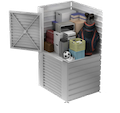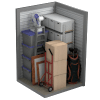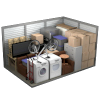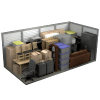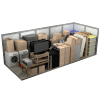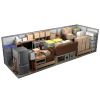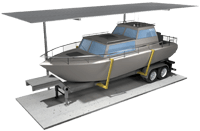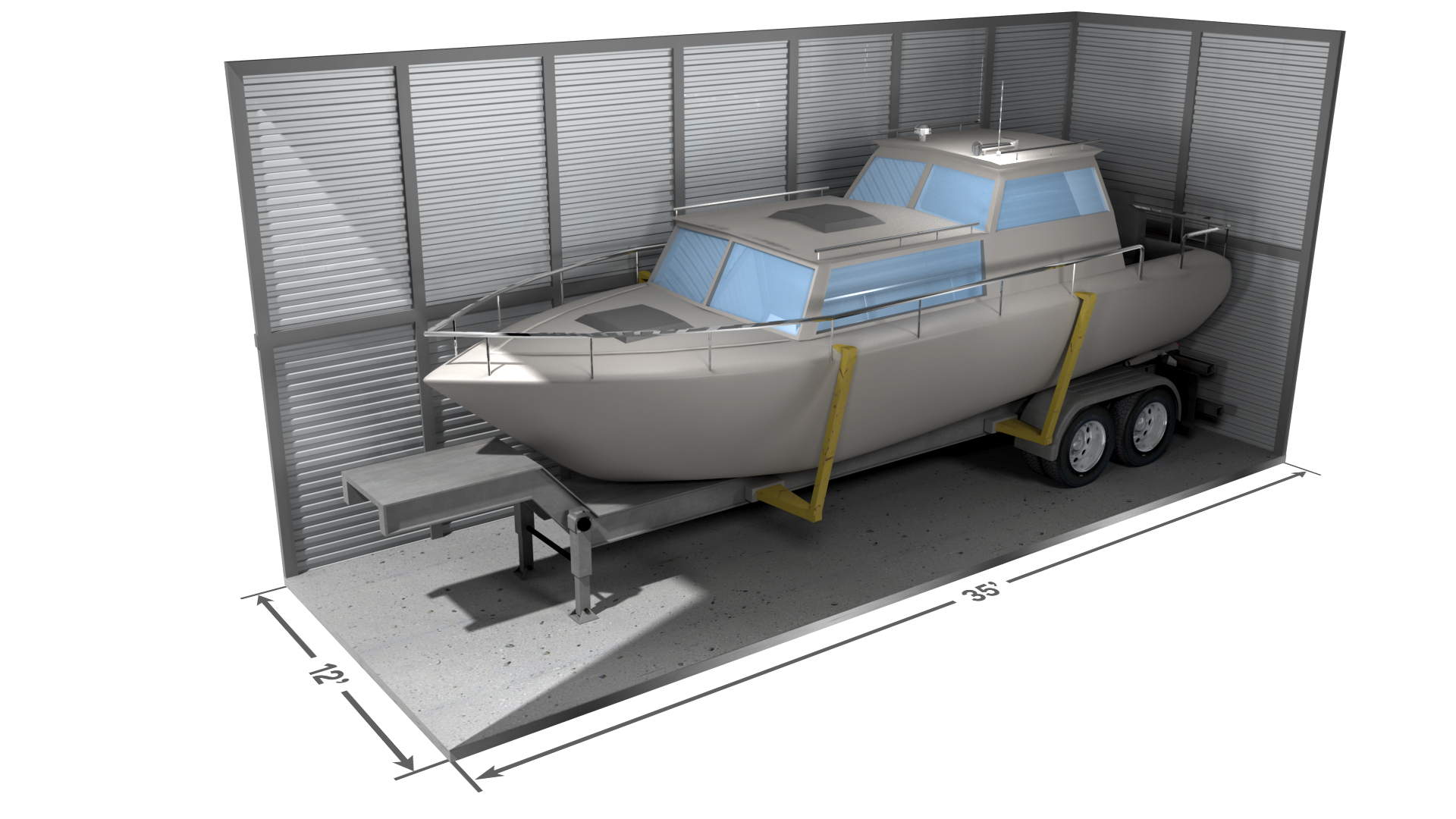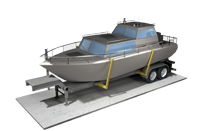Buying an RV is one of the most thrilling purchases, as it opens the door to a world of adventure. However, choosing which RV to purchase can feel daunting due to the endless options available. From tiny teardrop trailers to luxurious motor homes, the RV world offers something for everyone.
This comprehensive guide from the experts at Safeguard Self Storage will help you learn about the different types of RVs, understand the standard sizes, and identify the best features to look out for. With this information, you can guarantee that you will find the perfect home on wheels that fits your lifestyle and needs.
Types of RVs
Deciding which type of RV to buy depends on several factors. Various kinds of RVs appeal to different interests, including how far you plan on traveling to RV destinations, what you plan on doing, and more.
Motor Homes
Motor homes are what most people think of when they think of RVs. They can be divided into three classes:
- Class A. These are the largest and most luxurious, resembling buses. They often include full kitchens, bathrooms, spacious living areas, and washer and dryer units. They are ideal for long-term travel or full-time living.
- Class B. Also known as camper vans, these are compact and easier to drive. They offer basic amenities and are perfect for solo travelers or couples prioritizing mobility and simplicity.
- Class C. These RVs are built on a truck or van frame with an over-cab sleeping area. They offer a balance between the space of a Class A and the drivability of a Class B, making them a versatile choice for families.
2. Towable RVs
Towable RVs need to be hitched to a separate vehicle. There are three main classifications:
- Travel trailers. From small, lightweight models to large, multiroom trailers, these offer great flexibility as you can unhitch your tow vehicle and explore the surroundings.
- Fifth-wheel trailers. These large trailers are designed to be towed by a pickup truck with a special hitch. They provide ample living space and often have multiple slide-outs for extra room.
- Pop-up campers. Compact and lightweight, pop-up campers are great for occasional campers and those with limited storage space. They expand when set up and offer basic amenities.
3. Specialty RVs
You can purchase additional types of specialty RVs that offer extra flexibility. Here are a few:
- Teardrop trailers. These tiny trailers are easy to tow and perfect for minimalists. They usually include a bed and a small kitchen area.
- Truck campers. These are mounted directly onto the bed of a pickup truck, offering a compact living solution that can go off-road.
- Toy haulers. These RVs combine living quarters with storage space and have a built-in garage for transporting motorcycles, ATVs, or other recreational gear.
Common RV Sizes
Size is one of the most important things to consider when choosing an RV. Some standard sizes offered include:
- Small RVs—up to 20 feet. Ideal for solo travelers or couples, these are easy to drive and park and offer essential amenities in a compact space.
- Medium RVs—20-30 feet. Suitable for small families or couples needing additional space. These strike a balance between comfort and maneuverability.
- Large RVs—30+ feet. These are best for families or those wanting more luxury and amenities. They require more driving skills and parking space and offer a spacious and comfortable living experience.
Key Features to Look For
Size and appearance are essential, but what’s inside your RV also matters. Here are RV features to look for:
Safety Features
Safety should be a top priority when choosing an RV. Look for RVs with smoke detectors, carbon monoxide detectors, fire extinguishers, and backup cameras. Additionally, ensure the RV has good brakes, tires, and stabilization systems.
Layout and Space
Consider how much living space you need, then look at the floor plans and choose one that fits your lifestyle. Consider sleeping arrangements, kitchen layout, and whether you need a separate living area or workspace to feel comfortable.
Storage
Adequate storage is crucial for long trips. Check for both internal and external storage options. Overhead cabinets, under-bed storage, and exterior compartments can make a big difference in organizing your space!
Kitchen Amenities
Depending on your cooking needs, look for RVs with fully equipped kitchens. Features like a full-sized refrigerator, stove, oven, microwave, and ample counter space can make meal preparation more manageable and enjoyable.
Bathroom Facilities
RVs can come equipped with anything from a basic toilet to a full bathroom with a shower. Some prefer the convenience of a full bathroom, while others are fine with using campground facilities. Decide what you and your fellow passengers need, then choose accordingly.
Climate Control
Ensure that your RV has adequate heating and cooling systems. This is essential for a comfortable trip, especially if you plan to travel in extreme weather conditions. Look for vehicles with well-insulated walls, dual-pane windows, and efficient air-conditioning and heating systems.
Entertainment and Connectivity
Modern RVs often have built-in entertainment systems, Wi-Fi boosters, and satellite TV options. These features can be very beneficial if you plan to spend a lot of time inside or need to work remotely while traveling.
Choosing the right RV involves careful consideration of your needs, preferences, and lifestyle. By understanding the different types and sizes of RVs and their essential features, you can make an informed decision and find the perfect home on wheels for your next adventure!

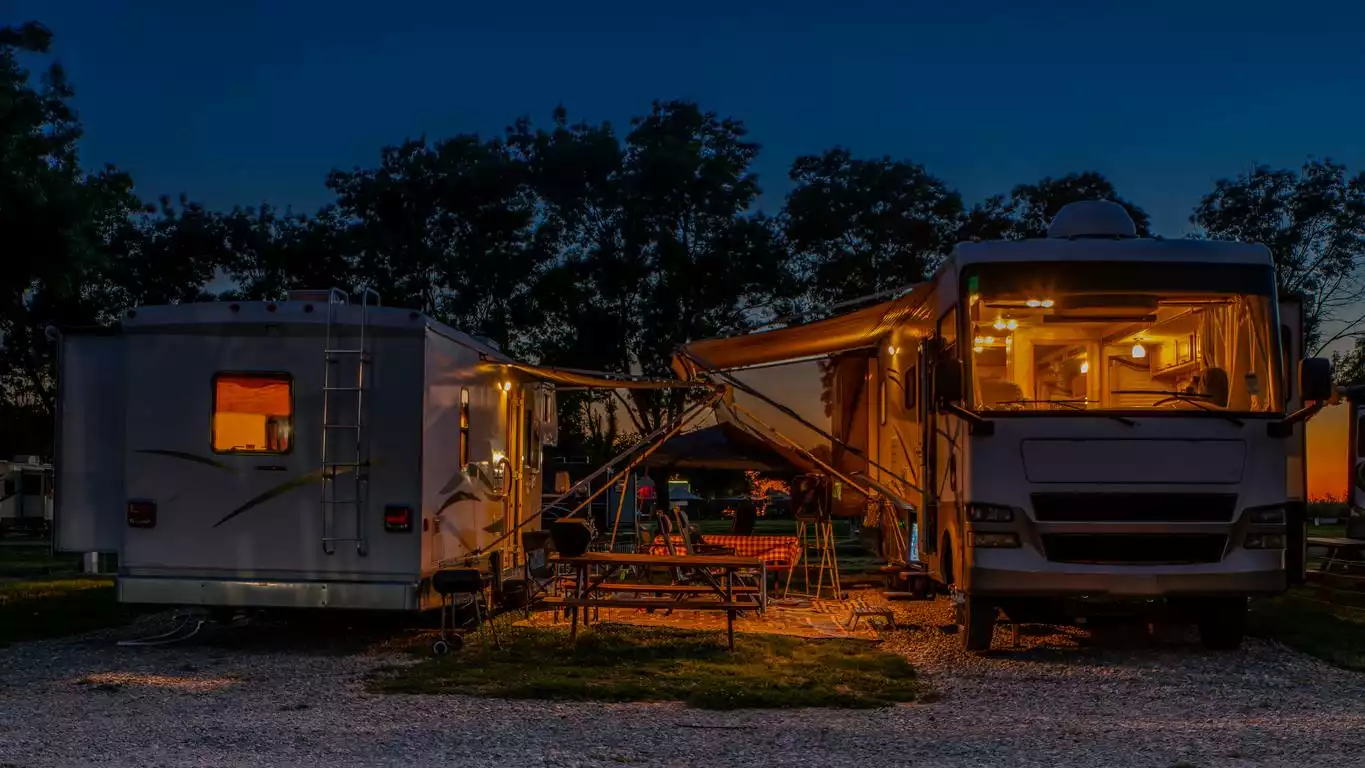 ';
';




